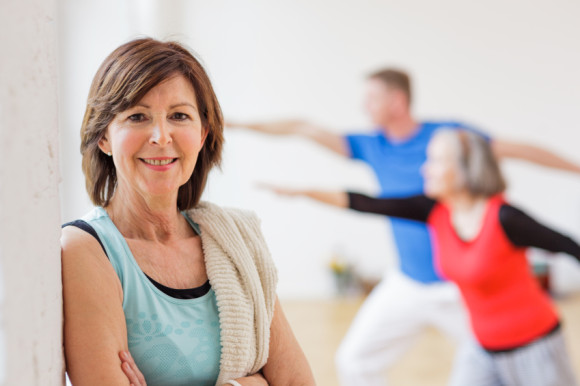Fall prevention may not seem like a lively topic, but it’s important. As we get older, physical changes and health conditions — and sometimes the medications used to treat those conditions — make falls more likely. In fact, falls are a leading cause of injury among older adults. Still, fear of falling doesn’t need to rule your life. Instead, consider these simple fall prevention strategies.
General Fall Prevention – This list applies to all rooms in your home.
• Keep your lower body as strong as possible through regular exercise (see your Physical Therapist for an individualized program).
• Be sure all hallway and stairway areas are brightly lit.
• Remove all clutter (e.g., boxes, stacks of magazines, toys, extra furniture).
• Get rid of all throw (scatter) rugs. Tack down loose or torn carpet.
• Use non-skid backing on all area rugs including bathroom throw rugs.
• Use non-slip wax on floors
• Apply yellow safety tape to the changes in surface levels (steps, thresholds) so they are easier to see.
• Be sure lighting is adequate. Install night lights or motion detector lights in commonly used areas (e.g., hallways, stairways, bathrooms, bedrooms).
• Keep electrical and telephone cords out of your walkways.
• Be aware of pets that can get under your feet.
• Consider a personal emergency response system or cell phone.
• Keep important phone numbers close to all phones and a phone close to your bed for emergencies.
• Consult a professional before investing in medical equipment.
• Clean up spills and wet surfaces immediately.
Medications
• Be sure your doctor has a complete list of all the medications you’re taking including herbal and natural products.
• Check with your doctor if your medication causes you to feel dizzy or lightheaded. Exercise caution when moving from a seated to standing position. Some medications may place you at a higher risk for falls (e.g., heart, blood pressure, sleeping, and water pills).
• Keep your medication list with you at all times. Place this list close to your telephone in case of an emergency.
Clothing
• Clean your eyeglass lenses frequently and keep fresh batteries in your hearing aid.
• Wear low or no-heel shoes that fit well. Wear sturdy slippers with non-skid soles. Try using shoes with elastic laces or Velcro closures.
• Wear short garments or pants rather than long dresses and robes.
Environment
It may be necessary to change the environment to make your home easier and safer to navigate. Below is a guide to help you evaluate your home for safety risks. Please note: All NO responses indicate a possible safety risk and should be corrected immediately.
Here are some additional tips to keep in mind to help prevent falls.
Entryway Tips
• Have a qualified individual install a ramp.
• A single step should have a grab bar for support
Stairway Tips
• Place a railing on both sides of stairways.
Living Room & Family Room Tips:
• Consider changing round door knobs to level handles.
• Consider a chair with arms for added safety.
• All cords should be placed along walls not under rugs or across traffic areas.
• Use nonskid pads for furniture on hard wood floors.
Kitchen Tips
• Keep all pot handles turned inward on stove.
• Place items frequently used within easy reach.
• Never stand on a chair to reach a high shelf.
• Place milk in small pitchers so it is easier to carry.
Bathroom Tips
• Leave bathroom door unlocked.
• Never use a towel bar for support.
• Consider a shower chair/handheld shower head.
• Remove clutter from all surfaces.
Bedroom Tips
• Keep a bell at your bedside to call for help.
• Keep a phone on your nightstand to call for help.
• Close doors and drawers after use.
• Place frequently used clothing in top drawers of dresser for easier access.
Laundry Tips
• Consider moving your washer/dryer out of basement.
• Consider using a laundry bag with a shoulder strap rather than a basket.
For more information on how you can take charge of your health and help prevent falls, contact Carson Tahoe Physical Therapy in Carson City at (775) 445-5757 or Minden at (775) 445-7842.







